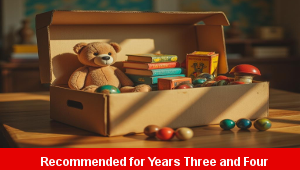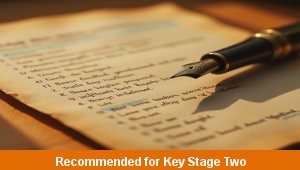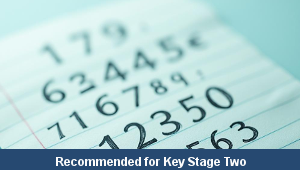Lesson Three – Story Maps

This English teaching pack for Key Stage Two gets the children to investigate how to role-play and record some matching ideas for a narrative story based on a work of fiction by Roald Dahl about travelling in a giant fruit.
The class can select and illustrate some of the problems that characters in the narrative might solve to match the plot developments and outcomes of a story by a significant author.
Download this teaching pack including a lesson plan, classroom activities and an interactive presentation to investigate how to role-play and record some matching ideas for a narrative story based on a work of fiction by Roald Dahl about travelling in a giant fruit
Activities in this teaching pack include a template to select and record ideas for a narrative story based on a book by Roald Dahl about travelling in a giant fruit to show the sequence of events and how characters might respond to different scenarios and issues.
The interactive presentation gets the children to explore how to role-play and record ideas for a narrative story based on a book by Roald Dahl about travelling in a giant fruit.
This lesson is part of an English scheme of work to get the children to plan and write a narrative story based on a book by a significant author, build words by adding the suffix ly and extend sentences using fronted adverbials. There are teaching activities for shared learning, differentiated worksheets to support independent learning and interactive presentations to introduce concepts and key skills.
-

Determinant Lists
Explain and model how to make lists of objects used and found in different locations to match the correct determinants of a and an
-

English SPAG Assessment
Assess abilities in composing sentences for fiction and non-fiction using the correct spellings, punctuation marks and grammar vocabulary phrases
-

Maths Arithmetic Assessment
Assess abilities in solving arithmetic number problems for addition, subtraction, multiplication and division when working with informal and formal written calculations
-

Environment
Identify and describe some of the special landscapes and locations that can be found in the world and reflect on how they can be protected and preserved for the future
